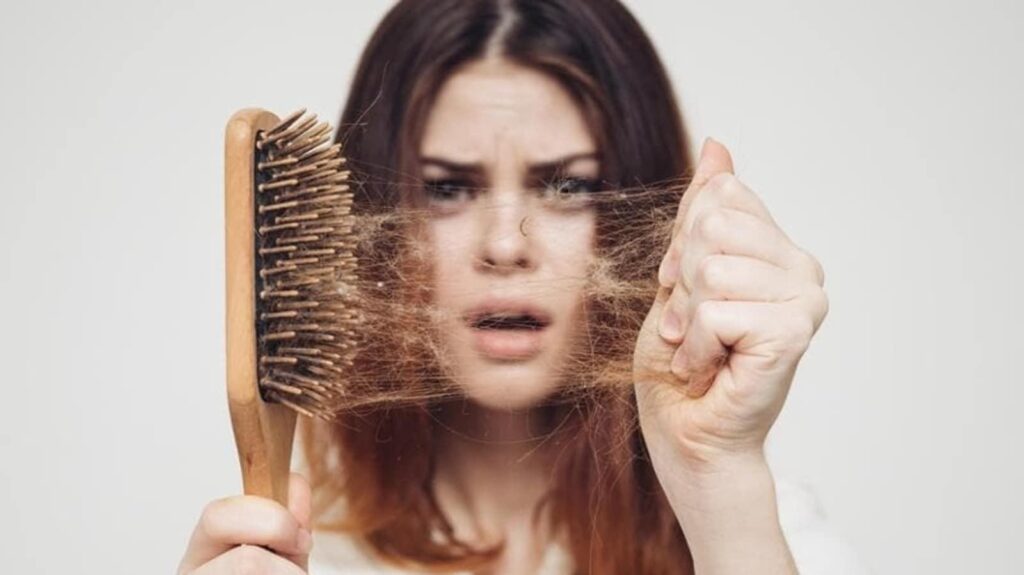
Since having a full head of hair is sometimes regarded as a sign of youth and self-assurance, it seems sense that individuals could get concerned when they begin to lose a lot of hair. The good news is that there are a few typical reasons why your hair hasn’t been looking quite the same lately. Understanding the underlying reason and choosing the right treatment strategy may be essential to regaining your head’s previous beauty if you are experiencing excessive shedding or patchy bald areas. In this article, we’ll examine the main factors that contribute to significant hair loss in people and offer suggestions for how to deal with each one. Read on if you’re worried about losing more than just the average number of strands every day.
Genetics
Page Contents
In most cases of hair loss, genetics is to blame. A receding hairline, a thinning crown, and a general reduction in hair volume are characteristics of male pattern baldness, also known as androgenetic alopecia. Female Pattern Baldness can affect women as well, typically showing as a widespread thinning around the temples or over the scalp. It is the most frequent kind of hair loss and is brought on by a confluence of hereditary and hormonal variables. The fact that these types of hair loss are all inherited means that if your parents or grandparents had it, there’s a good chance you will too.
Significant hair loss might also result from a hormonal shift. Since the body’s hormone levels normally vary after childbirth, this is most frequently observed in women as a result of pregnancy or childbirth. Due to hormonal changes during menopause and other periods when estrogen levels fall, shedding is a normal occurrence. Males may notice an increase in testosterone production, which might cause their hair to thin on their heads. It can be worthwhile to investigate hormone imbalances as a potential cause if you are losing hair at an abnormally high rate. If you are going to a hair transplant clinic, you should also inquire about them.
Stress
Your physical health, including your hair, might suffer from the stresses of daily living. Telogen effluvium, which causes excessive shedding and thinning hair, can be brought on by the body being under intense stress for extended periods of time. This illness can be exacerbated by traumatic experiences or persistent psychological anguish. It’s crucial to take care of yourself and make an effort to lessen mental stress in order to assist in regaining your mane’s previous beauty. The good news is that your hair loss can be restored with time and stress management as the primary contributing factors to telogen effluvium are frequently reversible.
Nutritional Deficiencies

Hair loss can be caused by a diet that is out of balance and lacks necessary vitamins and minerals. For example, a lack of essential minerals like iron, zinc, vitamin B12, and others needed for good hair development might cause thinning and eventually baldness. It is essential to consume wholesome meals that are rich in these vitamins if you want to get your head back to how it was before. A lot of people think that eating a lot of protein and omega-3 fatty acids is particularly good for hair development.
Alopecia Areata
If ignored, this autoimmune condition may result in patchy bald areas on the scalp that might quickly enlarge. Depending on the severity of the symptoms, treatment options for this condition include corticosteroid injections, topical medicines, light therapy, and even immunosuppressant treatments. In order to properly manage the illness, these therapies should be reviewed with a medical practitioner as soon as feasible. Additionally, the usage of wigs or hairpieces might assist to restore the scalp’s natural look.
Medical Conditions

Some medical diseases, such as thyroid problems, polycystic ovarian syndrome, iron deficiency anemia, and lupus, can cause hair loss either directly or indirectly by interfering with normal functioning. It’s crucial to discuss any underlying medical conditions with a doctor because deficiencies in vital vitamins or minerals can also lead to hair loss. Many people make the mistake of putting off taking care of their health until it is too late.
Dietary Factors
Significant hair loss may result from nutritional variables such fad diets, low-protein diets, crash diets, and vitamin deficits. To ensure that your diet is balanced, will encourage healthy hair development, and will reduce risk of hair loss, it is recommended to speak with a nutritionist. Many young individuals have a tendency to skip meals, which can cause a lack of protein and hair loss. If you want to keep your hair in good condition, it’s crucial to maintain a healthy, balanced diet.
Styling Habits
Significant hair loss can also be brought on by styling practices like over-coloring, using hot equipment, and improper brushing that harm the hair shaft physically. When using heat to style hair, it’s crucial to apply protective products, brush damp hair with a wide-tooth comb, stay away from excessive coloring, and use gentle treatments on the scalp. In addition, wearing your hair in tight styles like braids, ponytails, and buns can cause a lot of stress on your scalp and cause hair loss.
Autoimmune Disorders
Significant hair loss can also be brought on by autoimmune conditions like alopecia areata and lichen planopilaris. The immune system of the body targets the hair follicles in certain situations, resulting in uneven bald areas and excessive shedding. Hair loss is frequently merely a symptom of an autoimmune illness, therefore it’s critical to get medical attention from a doctor if you have one. Treatment options for alopecia areata may include immune-suppressing medications and oral corticosteroids.
Thyroid Problems

Another factor that might contribute to hair loss is improper thyroid gland function. Hypothyroidism or hyperthyroidism are terms used to describe when this organ does not function properly. Both conditions cause the body to produce either an excessive amount or an insufficient number of particular hormones, which subsequently contributes to hair loss. Medication used to treat thyroid issues typically helps control hormone levels and lessens hair loss brought on by these illnesses.
Conclusion
In conclusion, age, hormonal changes, heredity, particular hairstyles and products, and specific medical diseases including alopecia areata, telogen effluvium, and trichotillomania are among the causes of severe hair loss in people that have been previously addressed. You might be able to restore your head’s former attractiveness with the proper diagnosis and treatment plan for the underlying reason. It is advised that you see a doctor if you think any of these things could be the cause of your excessive shedding or patchy bald spots.

Lifebing is driven by an unrelenting passion for promoting health and well-being, our team is wholly committed to curating exceptional content and immersive experiences.
